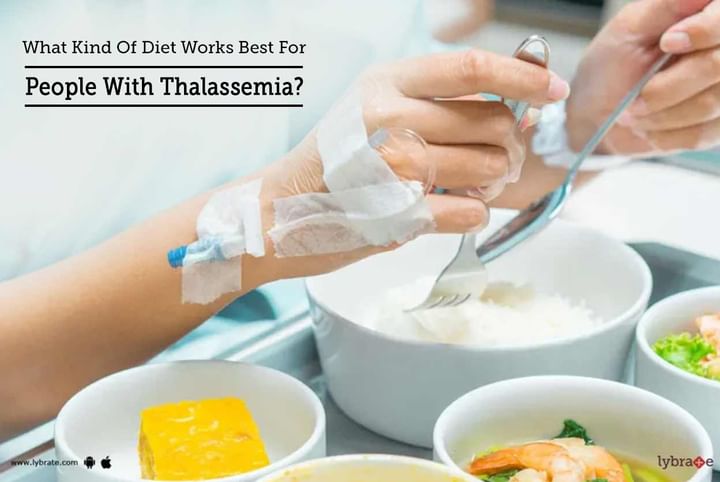What Kind Of Diet Works Best For People With Thalassemia?
Thalassemia is a blood illness that destroys haemoglobin in the blood. Unless managed properly, thalassemia can be fatal. Keeping the disease under control involves not just blood transfusion, folate intake and chelation therapy but also diet. What the patients eat has an impact on how well their bodies will respond to treatment.
Diet for thalassemia patients
Thalassemia can trigger nutritional deficiency illnesses, haemolytic anaemia, diabetes and iron build-up (because of regular blood transfusion and intake of iron supplements). So thalassemia patients have to be very particular about the foods they eat to prevent any of these complications setting in. Their diet should be a mix of the following-
- Protein
- Calcium
- Vitamin d
- Trace minerals such as zinc, copper and selenium
- Antioxidants such as Vitamin E and Vitamin C
Patients who do not require blood transfusion are recommended 1 mg of folate consumption every day and a low-iron diet. People who require blood transfusion and chelation therapy (which removes the excess iron from the blood) are advised to lay off iron-rich foods. Here are some nutrients that all thalassemia patients need-
- Protein - Growth and development slow down in children with thalassemia, which is why they need protein. But some sources of protein are high in iron too which must be avoided. Good protein sources- cheese, yoghurt, soy products, beans, eggs and nuts. Sources of protein to avoid- red meat like goat, lamb and liver.
- Vitamin D and calcium - Thalassemia causes bone problems like unnatural bone structure especially of the skull, widening of bones, loss of bone density and joint pain. To keep these problems in check, high calcium and vitamin D diet is recommended. Sources of calcium- milk and dairy products like cheese and curd, soy products, calcium-enriched cereals. Sources of Vitamin D- egg yolks, cheese, fatty fishes and Vitamin D supplements. Early morning sunlight is the best source of this Vitamin.
- Trace minerals - Copper, zinc and selenium are essential for protein and DNA synthesis. They are vital for the healthy growth of cells. They also regulate the function of different hormones. Thalassemia can trigger a deficiency of these trace minerals. Sources of zinc- whole grains and all milk products. Sources of copper- nuts, seeds, mushrooms, dark chocolate, legumes and eggs. Sources of selenium- chicken, turkey, dairy products and whole grains.
- Antioxidants - People who require frequent blood transfusion experience oxidative stress, which can damage cells and cause severe health complications such as diabetes and cancer. To remove free radicals from the body, antioxidants that can counter oxidative stress are necessary. Antioxidants also boost the body’s immune system and help reduce the likelihood of infections (thalassemia patients are at risk of many infections). Vitamin E and Vitamin C are powerful antioxidants. Sources of Vitamin C- oranges, guava, cauliflower, papaya and strawberries. Sources of Vitamin E- nuts, seeds, sunflower oil, broccoli.
Foods to avoid
Certain foods that are rich in iron must be avoided to prevent liver and heart problems-
- Watermelon
- Dates and raisins
- Leafy green vegetables
- Red meat
With a careful diet, thalassemia patients can live a normal life and increase their life expectancy. Avoid iron-rich foods and follow your dietician's instructions and you can be quite healthy.



+1.svg)
